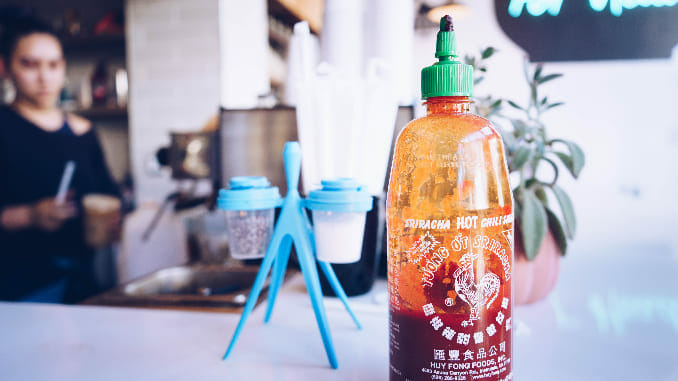Introducing Endless Mode: A New Games & Anime Site from Paste
Spicy food lovers who somehow managed to dodge the toilet paper, yeast and baby formula shortages may now finally be impacted by a shortage that’s already showing up on store shelves. One of the world’s most popular hot sauces is now going to be in short supply for the foreseeable future. News recently broke that Huy Fong Inc., the maker of Sriracha, reported that consumers should expect a shortage of the famed condiment along with their other Chili Garlic and Sambal Oelek products.
“Unfortunately, we can confirm that there is an unprecedented shortage of our products. We are still endeavoring to resolve this issue that has be caused by several spiraling events, including unexpected crop failure from the spring chili harvest,” the company said in a statement.
The company reportedly sources its chili peppers from Mexico, parts of which are currently suffering from a historic drought. One northern Mexican city is now limiting water access to a slim six-hour window to help curb water shortages, per Reuters. Largely because of this drought, Huy Fong is now telling customers that it won’t be accepting any new orders of Sriracha before September.
As expected, Sriracha-crazed spice lovers are now buying up bottles in bulk, posting photos of their shopping carts overflowing with the hot sauce a la 2020’s toilet paper debacle. Of course, many of these hot sauce hoarders are now facing backlash online for purportedly acting selfishly and exacerbating the shortages for everyone else.
Although fears of a hot sauce shortage seem unserious, especially in light of recent shortages of baby formula, Sriracha is just one more canary in the coal mine-turned-yellow bird sanctuary. As climate change comes for our favorite food products, it comes for people’s homes, their livelihoods, their lives. Those of us with the privilege of laughing at sauce hoarders on social media instead of contending with wildfires and flooding destroying our homes will soon be met with the much darker realities of climate change that the least fortunate of the world are already facing.
As climate change continues to increasingly shape our political, social and financial realities, it’s also likely to continue to reshape the way we eat. Wine, coffee and chocolate are all expected to see major shifts in production in light of new climate realities. More importantly, corn, rice and wheat, staple grains that billions rely on for the majority of their calories, are also liable to shortages in the coming years and decades.
When consumers hear news that their favorite products might be difficult to access in light of unforeseen climate crises, it’s understandable that their first reaction would be to stock up on the products in question so they, personally, can escape the consequences of the crisis. But as these shortages continue and likely become more severe, we as a society are going to have to shift how we react to this kind of news: The privileged cannot continue to contribute to these shortages in the name of self-preservation while the rest of the world struggles or starves. Now more than ever, we must avoid getting lost in the sauce.
Samantha Maxwell is a food writer and editor based in Boston. Follow her on Twitter at @samseating.
